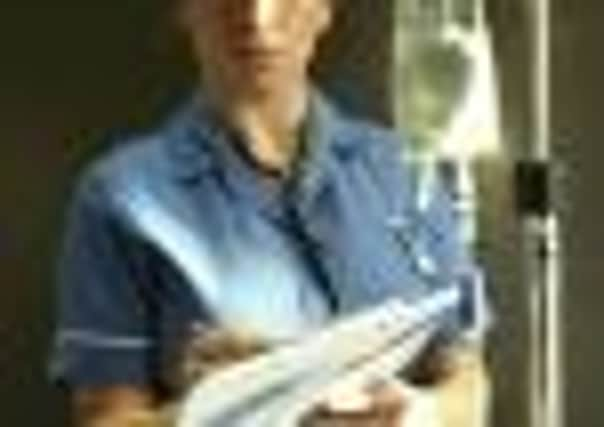2,000 fewer nurses under the SNP as fears raised for strain on frontline staff


The cut in frontline healthcare staff was condemned by patient groups, trade unions and opposition parties, who warned of a “significant strain” being put on staff who are struggling to deliver proper standards of care.
Statistics released yesterday showed the number of nurses and midwifery posts fell by 45 in the past three months – a drop of 2,000 in three years.
Advertisement
Hide AdAdvertisement
Hide AdThe Royal College of Nursing (RCN) also revealed that, on top of this, there were currently 1,390 nurse and midwife vacancies in Scotland – 400 more than in June.
These empty posts have been created as a result of jobs being downgraded and nurses having to take pay cuts to do the same jobs, the organisation claimed.
The RCN also said some of the posts were for specialisms where there were fewer qualified staff and grading levels had been changed for some posts, preventing many nurses applying.
Theresa Fyffe, RCN director in Scotland, described the fall in nurse numbers as “bad news for patients”.
She said: “We can’t escape the fact that since 2009 we have lost more than 2,000 nursing staff. Cuts to the workforce are not only bad news for patient care, but mean remaining staff in the NHS are increasingly over-stretched.
“With increasing cost pressures on boards, an ageing population and increasing demand for services, we need to be sure that the nursing workforce is sustainable and able to deliver high-quality care for every patient into the future.”
The number of nursing and midwifery staff was 56,263 at the end of September, compared with 56,309 at the same time in 2011.
Previous figures show 57,878 nurses and midwives were employed in September 2008, and this rose to 58,428 in 2009.
Advertisement
Hide AdAdvertisement
Hide AdThe RCN says the drop in staffing levels is a result of cost-savings by health boards and includes voluntary redundancy and not replacing posts that become vacant.
Labour health spokeswoman Jackie Baillie said the reduced nursing levels had led to an increase in the number of complaints from patients.
She said: “Not having adequate nursing staff numbers is one of the main reasons complaints are at an all-time high.
“The NHS can’t go on like this. It’s getting by on a month-by-month, year-by-year basis, with no strategic planning. The money is running out and more cuts are inevitable.”
The drop in the staffing levels comes two years after Scotland’s health boards were set a target of working to save £45 million on staff costs every year.
Scottish Tory health spokesman Jackson Carlaw, said: “With almost 1,400 vacancies, we really need to address this gap now. Filling these spaces would go a long way towards easing the pressure on those in place and result in better care for patients.”
The official figures showed a slight increase, 0.1 per cent, in the total number of staff employed by the NHS. It stood at 162,234 in September, 883 more than the time last year.
Health secretary Alex Neil said: “We know more people are being treated in the community and hospital stays are shorter than ever, so the shape of the NHS workforce is changing, but I am very clear our hospitals must have the levels of staffing and skills to continue to deliver the very best-quality care.
“That’s why it is vital any changes are led by in-depth and rigorous planning, so we can make sure the right mix of staff are working in the right place.”